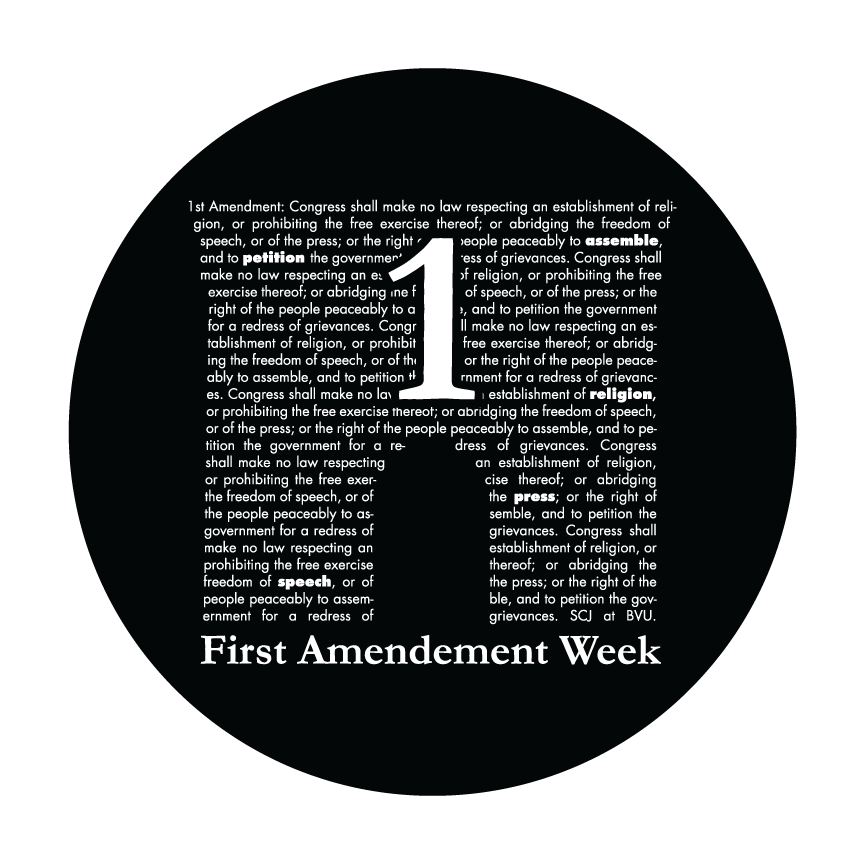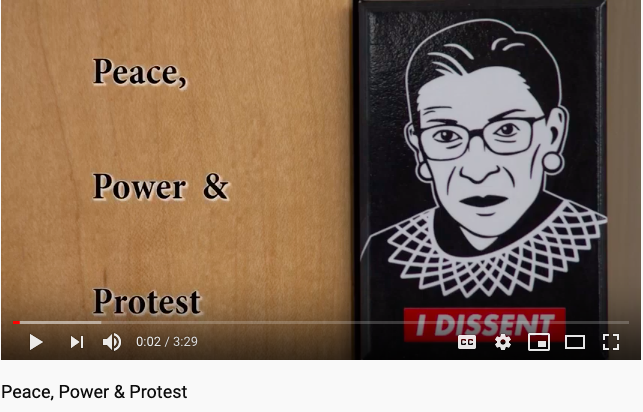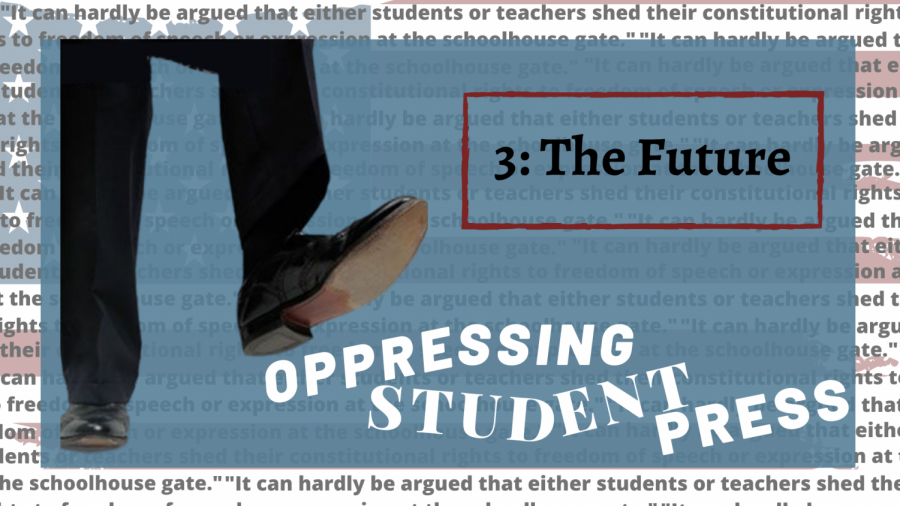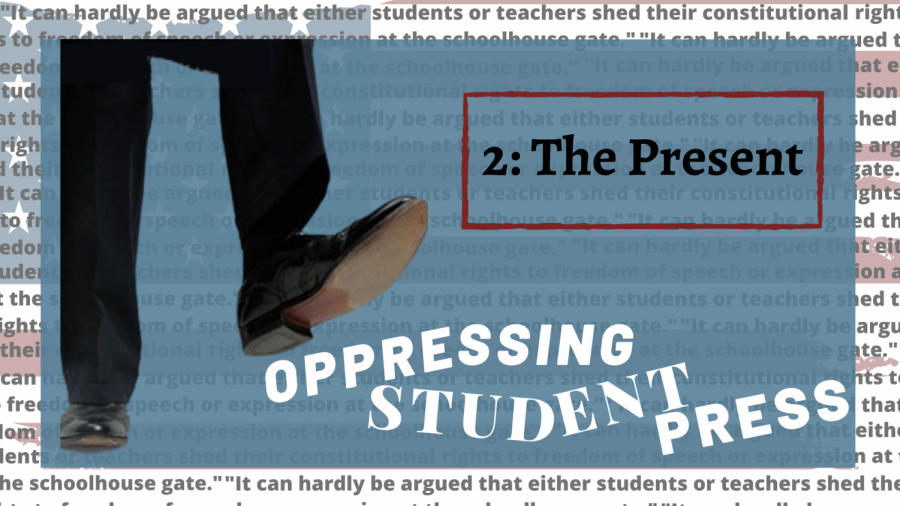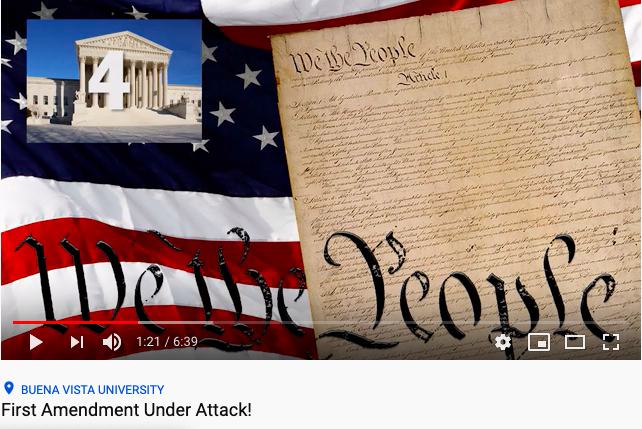Gibson Berns | Contributing Writer
Free speech is one of the five main components of the first amendment, and my favorite one. It can be all types of scenarios: whether it is talking out loud, speaking during a protest and freedom of speech can also be used with the things you wear on an everyday basis. It is something that most of us take for granted pretty much every day of our lives, the right to wear (mostly) whatever we want.
First Amendment Issues Around the World
That is a freedom that not every country has around the world and we should be thankful for that. For example, The Guardian described how Russia banned “emo clothing” from their country, which describes “emos” as “kids with things such as black clothing, black hair, and ear and eyebrow piercings among others.” The BBC had an article about Uganda, where a bill was passed that prohibited “indecent clothing” for women, which includes mini skirts. Both of these bills that were passed in the last decade bar the expression that people can have with their clothing. These are just a few of the ways different countries around the world prohibit speech and expression.
School Uniforms: Yes or no?
Even though the United States is said to be the “Land of the Free,” there are some limits to what we can and cannot wear. This is especially true when it comes to being in a school, public and private, as they both have their limitations. In some catholic and private high schools, school uniforms are mandatory.
This is one of the biggest things for me as a young person, being able to express myself in all sorts of ways. Even though I mostly wear sweatpants (they are extremely comfortable), I could not stand to go to a school that I had to wear a polo shirt and khakis to every day. It may not be a big deal to some people, but this is a big deal to me.
On Debate.org, the debate of public schools having school uniforms or not is pretty even. The side that says, yes schools should have uniforms, is up 54%-46%. It is an anonymous online poll and anybody can vote on it, yet it has responses of people for reasons of why they are on their respected side.
Most of the responses on the pro-uniform side had to do with bullying. They feel that some of the bullying in public schools stem from the difference in apparel worn by students. The poorer kids may have worse clothes, which may result in teasing and criticism from some of the richer kids.
Some of the arguments on the anti-uniform side explain that bullying will not stop, regardless of uniforms or not. The main argument on the anti-uniform side is that of expression. Each person is different; clothes are one of those ways to do that.
Court Cases and Scenarios to know
Tinker vs. Des Moines Independent School District in 1969 helped out the individual rights of students in the public school setting. Three students were expelled from school for wearing black armbands in protest of the Vietnam War. This was a legal act by the students due to the First Amendment. Justice Abe Fortas delivered the now famous quote that, “Students do not shed their constitutional rights at the schoolhouse gate.” This case allows public school students to wear items that are constitutionally given to them, as long as they are not disruptive to the classroom and of learning.
In December of 2003, according to First Amendment Center, the 4th Circuit determined that a Virginia school policy was too vague. The school policy barred a student from wearing a shirt with three people holding guns with “NRA Sports Shooting Camp” written on it. The student was originally told to never wear the shirt again, due to the policy prohibiting any clothing depicting weapons. Well, the Court used the Virginia state seal as an example, which has a woman holding a spear, as an example of how vague this policy was.
In 2013, a Connecticut high school student wore a shirt that had a multi-colored rainbow, with a red circle with a slash through it. The student was originally suspended, but according to the American Civil Liberties Union, it was overturned as they threatened to back the student in a case. Sandra Staub, legal director of the ACLU of Connecticut, said that the organization does oppose the student’s anti-gay views, but “The First Amendment is not merely a theoretical discussion topic but a real and vital guarantee.”
In all of these cases and scenarios so far, the school has lost trying to enforce school policies that are either too broad or hurt a student’s First Amendment rights. The case of Guiles vs. Marineau is different, though, according to Washington Law’s official website. A student wore a shirt of George W. Bush to school, with President Bush’s head on the body of a chicken. That is all fine and dandy until on one of the wings was a martini and some cocaine. The student was asked to turn the shirt inside out, or cover up the drugs and alcohol on the shirt. The student and his father felt like it was just political talk and should be backed by the First Amendment; however a previous court case made this case a lot easier.
The case of Bethel School District vs. Fraser was between a student who spoke at a school event and his high school. His speech in front of the school, according to Britannica, had plenty of sexual innuendos and caused plenty of students to yell, make obscene gestures, and many others feel embarrassed. Fraser argued that he was protected by his First Amendment right of free speech, the Supreme Court ruled otherwise. They stated that the state and school has a right to protect students from vulgar and offensive language, and the school has the authority to state which speech is appropriate.
Know Your Rights!
Know your rights as an American and do not let those First Amendment Rights go wasted. The United States of America is one of the freest places in the entire world, so use those rights. Whether that is to display a message that is extremely important to you or something that you believe needs to receive more attention, use your constitutional rights! Just do not cause a disruption and know the rules of your school. And remember, “Students do not shed their constitutional rights at the schoolhouse gate.”
Graphic by Justice Gage



